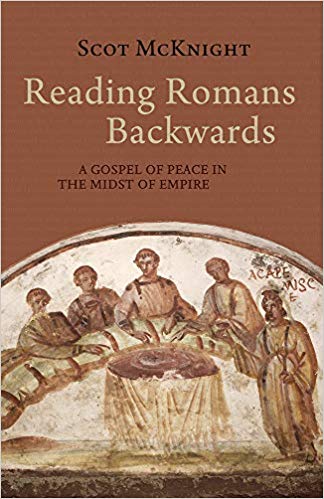BEN: It seems clear that Michael Gorman’s work has had a big impact on the way you read Romans. For example you say “Christoformity comes to fruition in an embodied God orientation, in a Body-of-Christ orientation, and in public orientation. The fundamental core of Christoformity is ‘because you are in Christ, you are not to act according to Privilege and Power, to elective status and history, but instead you are to love your neighbor by offering your entire body daily to God, to live as siblings with all other Christians by welcoming one another and
eating at the table with each other and indwelling one another [????], and you are to love your Roman neighbor as yourself with civility and intentional acts of benevolence.” (p. 93). Some of this of course comes from your reading of Romans 12-14, but some of it presupposes the paradigm in Phil. 2.5-11 where Christ is the model for Christian behavior. Do you think the Romans even knew this paradigm? Maybe from Priscilla and Aquila?
SCOT: Union with Christ is the larger conceptual category, and “in Christ” language is part of that, so I think there’s foundation for the Christoformity language there. But the point I would make here is that Christoformity is grounded in Romans 8:29 as well as in baptism language. Do I think they knew about Philippians 2? I don’t know that but the death to self language of Romans 5-6 I would think suggests they at least knew the idea.
BEN: Why do you think Paul thinks that the mere announcing of the Gospel message to unbelievers is ‘performative’ it accomplishes something? (see 1 Thess. 2.13, or Gal. 3.1ff).?
SCOT: Because he believes the Spirit is at work every time the gospel is preached/declared.












